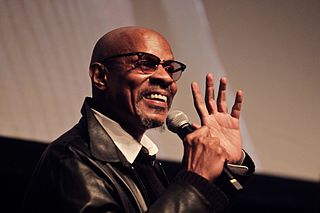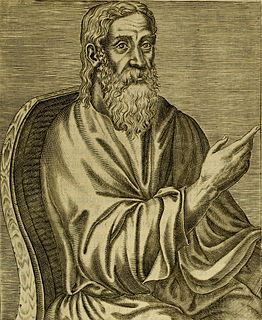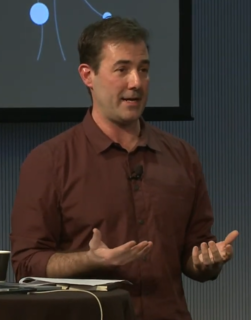Top 1200 Knowledge Of God Quotes & Sayings - Page 2
Explore popular Knowledge Of God quotes.
Last updated on April 15, 2025.
And if there be any addition to knowledge, it is rather a new knowledge than a greater knowledge; rather a singularity in a desire of proposing something that was not knownat all beforethananimproving, anadvancing, a multiplying of former inceptions; and by that means, no knowledge comes to be perfect.
Wouldn't it be wonderful if we had a world where everybody said, 'We don't know?' The fact is that you're surrounded -God and you don't see God, because you KNOW ABOUT God. The final barrier to the vision of God is your God concept. You miss God because you think you know. The highest knowledge of God is to know God as unknowable. All revelations, however divine, are never any more than a finger pointing at the moon. As we say in the East, 'When the sage points to the moon, all the idiot sees is the finger'.
Surely knowledge of the natural world, knowledge of the human condition, knowledge of the nature and dynamics of society, knowledge of the past so that one may use it in experiencing the present and aspiring to the future--all of these, it would seem reasonable to suppose, are essential to an educated man. To these must be added another--knowledge of the products of our artistic heritage that mark the history of our esthetic wonder and delight.
If one does not make human knowledge wholly dependent upon the original self-knowledge and consequent revelation of God to man, then man will have to seek knowledge within himself as the final reference point. Then he will have to seek an exhaustive understanding of reality. He will have to hold that if he cannot attain to such an exhaustive understanding of reality he has no true knowledge of anything at all. Either man must then know everything or he knows nothing. This is the dilemma that confronts every form of non-Christian epistemology
Wisdom and knowledge can best be understood together. Knowledge is learning, the power of the mind to understand and describe the universe. Wisdom is knowing how to apply knowledge and how not to apply it. Knowledge is knowing what to say; wisdom is knowing whether or not to say it. Knowledge gives answers; wisdom asks questions. Knowledge can be taught, wisdom grows from experience.
When speaking of a "body of knowledge" or of "the results of research," e.g., we tacitly assign the same cognitive status to inherited knowledge and to independently acquired knowledge. To counteract this tendency a special effort is required to transform inherited knowledge into genuine knowledge by revitalizing its original discovery, and to discriminate between the genuine and the spurious elements of what claims to be inherited knowledge.
...God does not possess a private knowledge of Himself and a separate knowledge of all the creatures in common. The universal Cause, by knowing Itself, can hardly be ignorant of the things which proceed from It and of which It is the source. This, then, is how God knows all things, not by understanding things, but by understanding Himself.
The Christian's instincts of trust and worship are stimulated very powerfully by knowledge of the greatness of God. But this is knowledge which Christians today largely lack: and that is one reason why our faith is so feeble and our worship so flabby... When a person in the church, let alone the person in the street, uses the word God, the thought is rarely of divine majesty.
It is not unlikely, too, that the rejection of God is a kind of punishment: we may well believe that those who knew the Gods and neglected them in one life may in another life be deprived of the knowledge of them altogether. Also those who have worshipped their own kings as gods have deserved as their punishment to lose all knowledge of God.
We should not be content to say that power has a need for such-and-such a discovery, such-and-such a form of knowledge, but we should add that the exercise of power itself creates and causes to emerge new objects of knowledge and accumulates new bodies of information. ... The exercise of power perpetually creates knowledge and, conversely, knowledge constantly induces effects of power. ... It is not possible for power to be exercised without knowledge, it is impossible for knowledge not to engender power.
The fulfilment that is being in love with God is not the product of our knowledge and choice. It is God's gift. Like all being in love, as distinct from particular acts of loving, it is a first principle. So far from resulting from our knowledge and choice, it dismantles and abolishes the horizon within which our knowing and choosing went on, and it sets up a new horizon within which the love of God transvalues our values and the eyes of that love transform our knowing.
It is easy to see, though it scarcely needs to be pointed out, since it is involved in the fact that Reason is set aside, that faith is not a form of knowledge; for all knowledge is either a knowledge of the eternal, excluding the temporal and historical as indifferent, or it is pure historical knowledge. No knowledge can have for its object the absurdity that the eternal is the historical.
Loneliness is the fundamental force that urgees mystics to a deeper union with God... An experience of God quenches this thirst for the absolute but at the same time, paradoxiacally, whets it, because this is an experience that can never be total; by necessity, the knowledge of God is always partial. So loneliness opens up mystics to a desire to love each other and every human being as God loves them.
I am convinced that it is impossible to expound the methods of induction in a sound manner, without resting them upon the theory of probability. Perfect knowledge alone can give certainty, and in nature perfect knowledge would be infinite knowledge, which is clearly beyond our capacities. We have, therefore, to content ourselves with partial knowledge - knowledge mingled with ignorance, producing doubt.
Why pray? Evidently, God likes to be asked. God certainly does not need our wisdom or our knowledge, nor even the information contained in our prayers ("your Father knows what you need before you ask him"). But by inviting us into the partnership of creation, God also invites us into relationship. God is love, said the apostle John. God does not merely have love or feel love. God is love and cannot not love. As such, God yearns for relationship with the creatures made in his image.
How wrong it is to use God as a stop-gap for the incompleteness of our knowledge. . . . We are to find God in what we know, not in what we don't know; God wants us to realize his presence, not in unsolved problems but in those that are solved. . . . God is no stop-gap; he must be recognized as the center of life, not when we are at the end of our resources.
In order to the existence of such a ministry in the Church, there is requisite an authority received from God, and consequently power and knowledge imparted from God for the exercise of such ministry; and where a man possesses these, although the bishop has not laid hands upon him according to his traditions, God has Himself appointed him.
For life is a fire burning along a piece of string--or is it a fuse to a powder keg which we call God?--and the string is what we don't know, our Ignorance, and the trail of ash, which, if a gust of wind does not come, keeps the structure of the string, is History, man's Knowledge, but it is dead, and when the fire has burned up all the string, then man's Knowledge will be equal to God's Knowledge and there won't be any fire, which is Life. Or if the string leads to a powder keg, then there will be a terrific blast of fire, and even the trail of ash will be blown completely away.
On the basis of the eternal will of God we have to think of EVERY HUMAN BEING, even the oddest, most villainous or miserable, as one to whom Jesus Christ is Brother and God is Father; and we have to deal with him on this assumption. If the other person knows that already, then we have to strengthen him in the knowledge. If he does no know it yet or no longer knows it, our business is to transmit this knowledge to him.
There are some who do not learn, and who do not improve as fast as they might, because their eyes and their hearts are not upon God; they do not reflect neither do they have that knowledge which they might have; they miss a good deal which they might receive. We have got to obtain knowledge before we obtain permanent happiness; we have got to be wide awake in the things of God.
Let all our employment be to know GOD: the more one knows Him, the more one desires to know Him. And as knowledge is commonly the measure of love, the deeper and more extensive our knowledge shall be, the greater will be our love: and if our love of GOD were great, we should love Him equally in pains and pleasures.
Opportunism towards knowledge is a utilitarian demand that knowledge must be immediately practical. Just like with sociology where we hope its purpose is to serve society, however, the true purpose of sociology lies in its impracticality. It cannot become practical or else it loses its meaning. Perhaps we should learn a different kind of knowledge: the knowledge to question knowledge.
We have heard of a Society for the Diffusion of Useful Knowledge. It is said that knowledge is power, and the like. Methinks there is equal need of a Society for the Diffusion of Useful Ignorance, what we will call Beautiful Knowledge, a knowledge useful in a higher sense: for what is most of our boasted so-called knowledge but a conceit that we know something, which robs us of the advantage of our actual ignorance? What we call knowledge is often our positive ignorance; ignorance our negative knowledge.
We can hardly say that the Pharisees had an accurate ‘knowledge’ of man when they pointed to the sins (the real sins) of publicans and sinners. This judgment, which separated knowledge of man from self-knowledge, was as nothing in God’s eyes. The Jew did not have a better understanding because he was able to judge the heathen. In the sphere of abstract morality this could possibly be said, but this is not Biblical morality - O man, who judgest others!
These algorithms, which I'll call public relevance algorithms, are-by the very same mathematical procedures-producing and certifying knowledge. The algorithmic assessment of information, then, represents a particular knowledge logic, one built on specific presumptions about what knowledge is and how one should identify its most relevant components. That we are now turning to algorithms to identify what we need to know is as momentous as having relied on credentialed experts, the scientific method, common sense, or the word of God.






















































